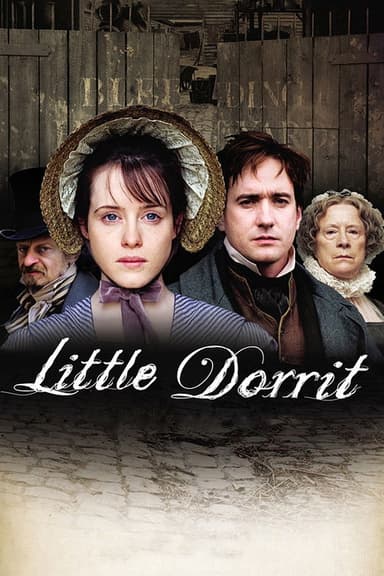
Great Expectations
2023 • Drama • TV-MA
Orphan Pip discovers through lawyer Mr. Jaggers that a mysterious benefactor wishes to ensure that he becomes a gentleman. Reunited with his childhood patron, Miss Havisham, and his first love, the beautiful but emotionally cold Estella, he discovers that the elderly spinster has gone mad from having been left at the altar as a young woman, and has made her charge into a warped, unfeeling heartbreaker.
Why you should read the novel
The original novel, 'Great Expectations' by Charles Dickens, offers a richly detailed portrayal of Victorian England and a profound exploration of ambition, class, and personal growth. Dickens’s language and wit add layers of humor, satire, and heartbreak that adaptations struggle to capture fully. The intricate character development and subtle psychological insights are best enjoyed through Dickens’s prose, rewarding readers with a deeper emotional and thematic experience.
Reading the book allows you to appreciate the author's mastery of storytelling and social commentary, unveiling the novel’s multitude of subplots and supporting characters that often get sidelined in adaptations. Dickens’s text immerses you in an evocative world where each character's voice and inner motivations are intricately intertwined with the plot.
By exploring the novel firsthand, you gain insight into the moral struggles and societal critiques Dickens intended, fostering empathy and understanding beyond what even the most stylish visual adaptation can deliver. For the full richness of Pip's journey and the psychological depth of characters like Miss Havisham, the literary classic remains unparalleled.
Adaptation differences
The 2023 TV series of 'Great Expectations' modernizes many aspects of Dickens’s novel, most notably by amplifying darker themes and embellishing adult content that is only implied in the original work. The series explores Pip’s moral ambiguity with far less subtlety, offering a grittier tone than Dickens ever intended. Some characters, like Miss Havisham and Estella, are reimagined to emphasize psychological trauma and agency, deviating from their more nuanced literary portrayals.
Another significant difference lies in the narrative's pacing and structure. The adaptation condenses and alters events for dramatic effect, frequently rearranging or omitting key sequences from the book. For example, the TV series elevates the criminal aspects of Pip’s world—by heightening violence and vice—while diminishing the importance of certain characters and subplots, like Pip's friendships and the comic relief provided by Wemmick and Joe Gargery.
Character motivations and relationships are also adapted to fit contemporary sensibilities. The series introduces modern dialogue and social commentary, sometimes sacrificing Dickens’s period authenticity in favor of emotional immediacy or shock value. The portrayal of Pip’s ambition and guilt is made much more explicit, while his personal growth is often overshadowed by external plot developments.
Finally, the visual adaptation opts for a much bleaker aesthetic, with heavily stylized sets and cinematography intended to evoke a sense of foreboding. This contrasts the novel’s balance between light and dark, hope and despair, diluting Dickens’s ultimately redemptive message. These creative liberties make for compelling television but steer audiences away from the book’s complex moral and emotional landscape.
Great Expectations inspired from
Great Expectations
by Charles Dickens





